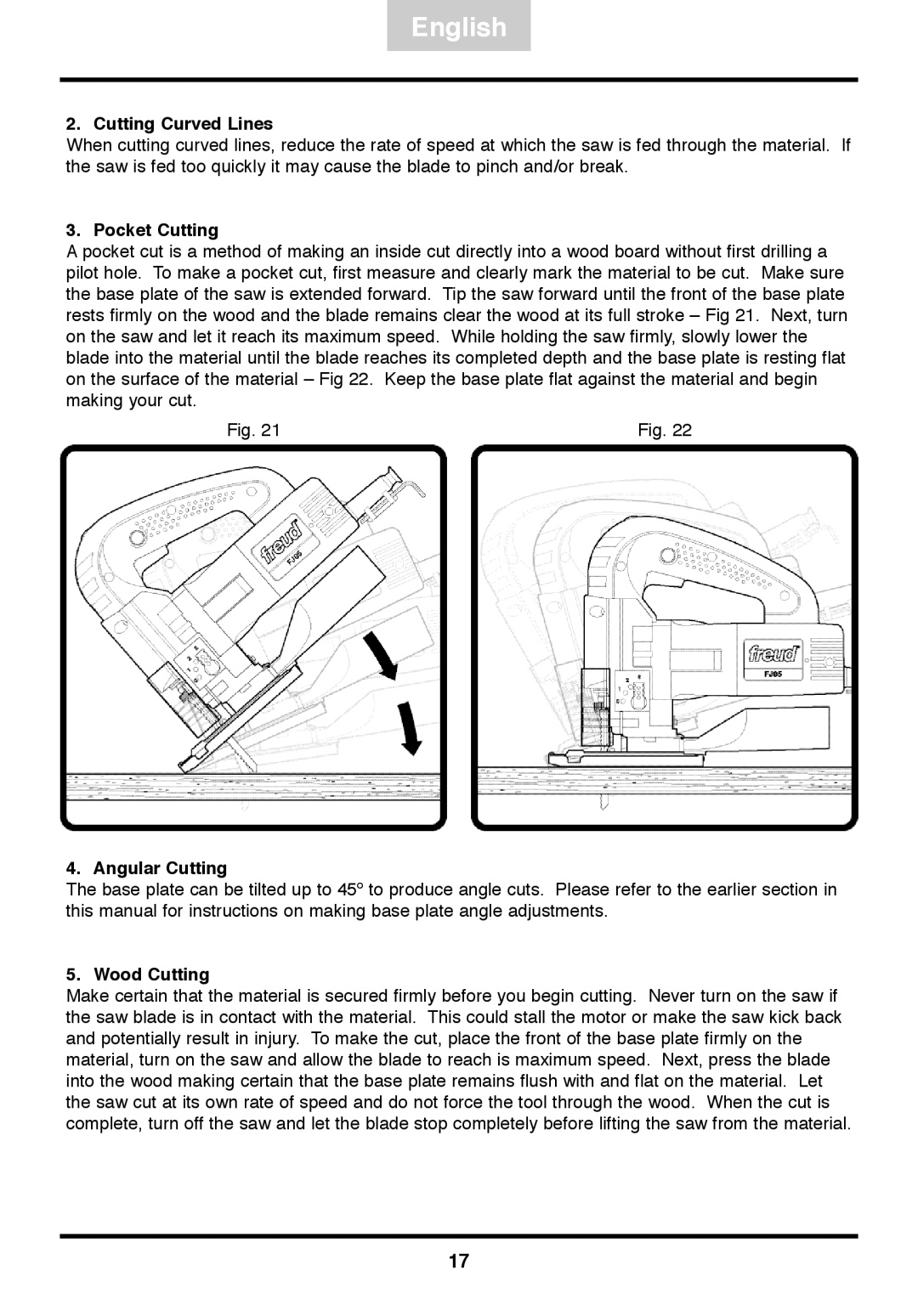
English
2. Cutting Curved Lines
When cutting curved lines, reduce the rate of speed at which the saw is fed through the material. If the saw is fed too quickly it may cause the blade to pinch and/or break.
3. Pocket Cutting
A pocket cut is a method of making an inside cut directly into a wood board without first drilling a pilot hole. To make a pocket cut, first measure and clearly mark the material to be cut. Make sure the base plate of the saw is extended forward. Tip the saw forward until the front of the base plate rests firmly on the wood and the blade remains clear the wood at its full stroke – Fig 21. Next, turn on the saw and let it reach its maximum speed. While holding the saw firmly, slowly lower the blade into the material until the blade reaches its completed depth and the base plate is resting flat on the surface of the material – Fig 22. Keep the base plate flat against the material and begin making your cut.
Fig. 21 | Fig. 22 |
4. Angular Cutting
The base plate can be tilted up to 45º to produce angle cuts. Please refer to the earlier section in this manual for instructions on making base plate angle adjustments.
5. Wood Cutting
Make certain that the material is secured firmly before you begin cutting. Never turn on the saw if the saw blade is in contact with the material. This could stall the motor or make the saw kick back and potentially result in injury. To make the cut, place the front of the base plate firmly on the material, turn on the saw and allow the blade to reach is maximum speed. Next, press the blade into the wood making certain that the base plate remains flush with and flat on the material. Let the saw cut at its own rate of speed and do not force the tool through the wood. When the cut is complete, turn off the saw and let the blade stop completely before lifting the saw from the material.
17
